If you've been in the cryptocurrency space for a few years, perpetual futures trading is probably not a new concept. With characteristics of high leverage, high risk, and high returns, it has become a focal point for global investors. However, in mainland China, this type of trading has been classified by some judicial authorities as "gambling," linking it to the "crime of operating a casino," which has sparked widespread controversy. Meanwhile, globally, countries are showing a trend of diversifying regulatory frameworks for cryptocurrency contract trading.
Criminal lawyer Deng Xiaoyu, while defending exchanges involved in perpetual futures gambling cases, compared the regulatory landscapes of major countries and regions worldwide. In this article, we will discuss the true nature of perpetual futures and the logic behind it to dissect the "casino" controversy in mainland China—whether it is financial innovation or an online casino. Let's have a chat about it.
Is Contract Trading a "Network Casino"?
In mainland China, some judicial rulings have classified cryptocurrency perpetual futures trading as "gambling behavior." The specific reasons were disclosed in a previous article titled "Why Does the Contract Trading of Virtual Currency Exchanges Involve Operating a Casino?" Many judicial authorities believe that:
- The price fluctuations of virtual currencies are characterized by irregularity, randomness, and chance.
- Exchanges amplify speculative risks through high leverage, making it highly risky.
According to current policy regulations, "virtual currency perpetual futures trading" is considered an illegal financial activity. Although defenders may argue that perpetual futures are akin to futures trading, the courts insist that this model is distinctly different from futures trading—it has no agreed delivery time, operates perpetually (24/7), involves extremely high leverage, and lacks physical or cash delivery. Players engaging in this trading model through exchanges are essentially participating in gambling behavior akin to "betting on outcomes." Therefore, it can be classified as "operating a casino."
The judicial authorities refer to "current policy regulations," primarily the notice issued in September 2021 by the central bank and ten other departments titled "Notice on Further Preventing and Dealing with Risks of Virtual Currency Trading Speculation," which clearly states that activities related to virtual currencies are illegal financial activities, including virtual currency derivatives trading. This provides a basis for judicial practice. However, is it hasty to lump the complex perpetual futures trading into the category of "casinos"? Let's consider a few questions:
1. The Definition of Cryptocurrency is Somewhat Vague
Mainland China has yet to establish a clear legal framework for the legal attributes of cryptocurrencies. Relevant regulations, such as the "Notice on Preventing Bitcoin Risks," the "Announcement on Preventing Token Issuance Financing Risks," and the 2021 notice, only emphasize that virtual currencies do not possess legal tender status and are prohibited from circulating as currency. But are they commodities? Securities? Or something else? There is still no classification system.
In contrast, international regulatory frameworks are more detailed. The U.S. Commodity Futures Trading Commission (CFTC) has long classified Bitcoin and Ethereum as "commodities," with derivatives treated as futures; the European Union's "Markets in Crypto-Assets Regulation" (MiCA) directly categorizes crypto assets and derivatives as financial products. These clear rules leave room for innovation, while the vague definitions in mainland China may limit industry development and create a disconnect with global trends.
2. What’s the Difference Between Perpetual Futures and Futures?
Perpetual futures are a unique derivative in the cryptocurrency market, evolved from traditional futures, and functionally they are highly similar: both allow investors to leverage predictions on asset price movements and settle the price difference upon closing or expiration. It sounds sophisticated, but it's essentially a "crypto version" of futures. Traditional futures allow players to leverage bets on price increases or decreases, and perpetual futures are similar, except they adjust the trading time from the traditional T+1 to a perpetual existence (24/7).
Is high leverage synonymous with gambling? This logic does not hold. In financial markets, leverage is quite common; perpetual futures simply bring the traditional futures gameplay into the crypto space, rather than being a "buy and hold" strategy at a gambling table. To consider it a "gambling tool" may overlook the financial logic behind it.
3. Price Fluctuations Are Completely Irregular?
Some viewpoints emphasize that the price of virtual currencies "fluctuates with irregularity, randomness, and chance," using this as a basis for gambling classification. This perspective significantly conflicts with global market analysis. In reality, mainstream cryptocurrencies like Bitcoin are no longer a solo act in the crypto space; they are increasingly tied to the global financial market. Prices are driven by multiple factors, including macroeconomics, supply and demand, technological developments, and geopolitical events.
In January last year, Nasdaq published an article titled "Understanding the Correlation Between Bitcoin and the Nasdaq 100 Index," pointing out that the long-term correlation coefficient between Bitcoin and the Nasdaq is as high as 0.805. Factors like Federal Reserve interest rate hikes, institutional purchases of ETFs, and geopolitical events can all influence Bitcoin prices. Players engaging in perpetual futures need to rely on technical analysis, fundamental research, and risk management strategies, not mere guessing. To label price fluctuations as "purely random" may overlook the maturity and complexity of the crypto space.
Global Regulatory Landscape: The "Legitimate" Path for Crypto Contracts
While regulatory authorities in mainland China view perpetual futures as gambling, other parts of the world do not share this view. This is not only a matter of legal provisions but also relates to the underlying recognition of virtual assets.
The European Union, the United States, Hong Kong, Dubai, Singapore, and the United Kingdom each have their own regulatory approaches, but the consensus is that perpetual futures are financial derivatives, not gambling activities. Whether they are legal depends on compliance with regulations, not on the level of leverage or the magnitude of price fluctuations.
European Union: The "Compliance Passport" for Financial Derivatives
In 2023, the European Union introduced the "Markets in Crypto-Assets Regulation" (MiCA), which set the tone for the discussion: perpetual futures are "crypto asset derivatives," treated the same as derivatives of stocks and bonds, and are regulated under the "Markets in Financial Instruments Directive" (MiFID II). Want to participate? You need to obtain MiCA approval, have sufficient capital, manage risks, and ensure transparency in trading.


*MiCA original text
Translated, it states: "Some crypto assets, particularly those that meet the definition of financial instruments as defined in the Directive 2014/65/EU of the European Parliament and Council, fall within the scope of existing EU financial services legislation. Therefore, a complete set of EU rules has already applied to issuers of such crypto assets and companies engaged in activities related to such crypto assets."
MiCA clearly states that any crypto asset and its related services that meet the definition of financial instruments in MiFID II are not subject to MiCA but are governed by the Directive 2014/65/EU, which is the "Markets in Financial Instruments Directive" (MiFID II), where financial instruments are defined. The EU regulatory framework treats cryptocurrency derivatives (as long as they are recognized as financial instruments) equally with traditional derivatives.
What seems complex is actually quite clear. In short, the EU does not consider perpetual futures to be "gambling" simply because of high leverage; instead, it has issued a "financial instrument" identification card for them. This set of rules encourages innovation while preventing chaos, representing a textbook balance.
United States: Separate Management, Each with Its Own Role
The United States has a clear stance on perpetual futures: they are derivatives, no different from futures or swaps. Bitcoin and Ethereum have been recognized as "commodities" by the CFTC, and their perpetual futures fall under CFTC regulation, following the Commodity Exchange Act; if it involves "securities" type crypto assets, then it falls under SEC regulation.
- Commodity Futures Trading Commission (CFTC): Responsible for regulating derivatives of cryptocurrencies recognized as "commodities" (such as Bitcoin and Ethereum). Perpetual futures based on these assets are considered commodity derivatives, with no essential difference from traditional futures options. They are typically viewed as "swaps" or "futures" and must comply with the Commodity Exchange Act (CEA).
- Securities and Exchange Commission (SEC): If a certain cryptocurrency is recognized as a "security," its derivatives (such as perpetual futures based on that asset) are subject to SEC regulation and must comply with the Securities Act and the Securities Exchange Act.
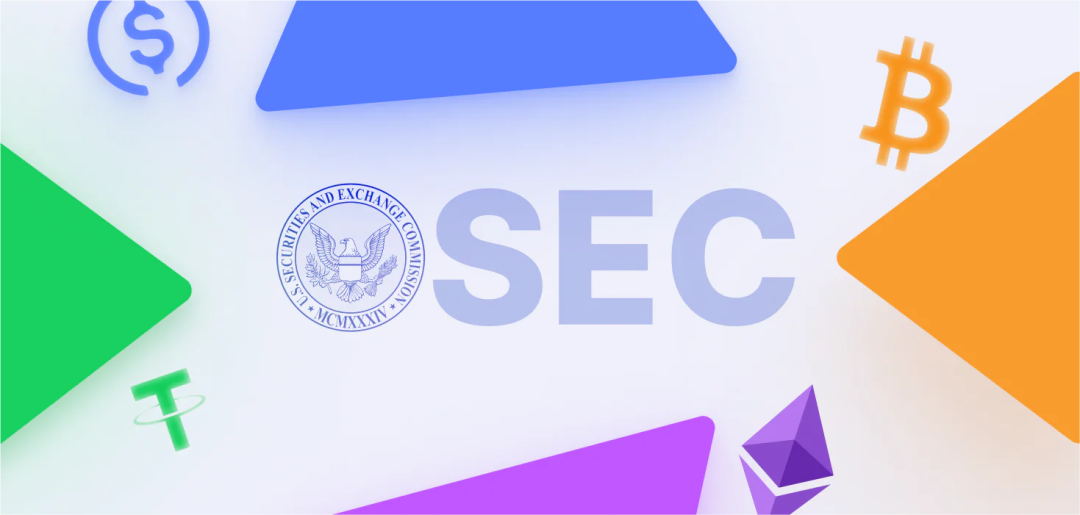
In 2021, the CFTC took action against BitMEX, imposing a $100 million fine because the platform provided high-leverage perpetual futures to U.S. users without registration. The CFTC enforcement official in this case clearly stated, "…… the registration requirements and core consumer protections Congress established for our traditional derivatives market apply equally in the growing digital asset market." This means, "The rules of the traditional derivatives market also apply to the crypto market." This statement is firm and indicates that the financial attributes of perpetual futures are not denied in the U.S.
Dubai: Balancing Innovation and Compliance
Securities and Commodities Authority (SCA) Regulates Virtual Assets Based on Securities
The SCA is the foundational regulatory framework for investment-related crypto asset activities in the UAE. The SCA defines virtual assets as value representations used for investment purposes that can be traded digitally, excluding legal tender, securities, and other digital currencies.
In recent years, the SCA has gradually revised and improved regulatory boundaries, issuing the "Virtual Asset Activities Regulation" at the federal level in November 2020, covering initial coin offerings (ICOs), exchanges, platform markets, custody services, and derivatives. Its main regulatory requirements include:
- Virtual asset business providers must be registered and established within the UAE or in financial free zones;
- Virtual asset service providers must obtain approval and licensing from the SCA.
Dubai Virtual Assets Regulatory Authority (VARA)
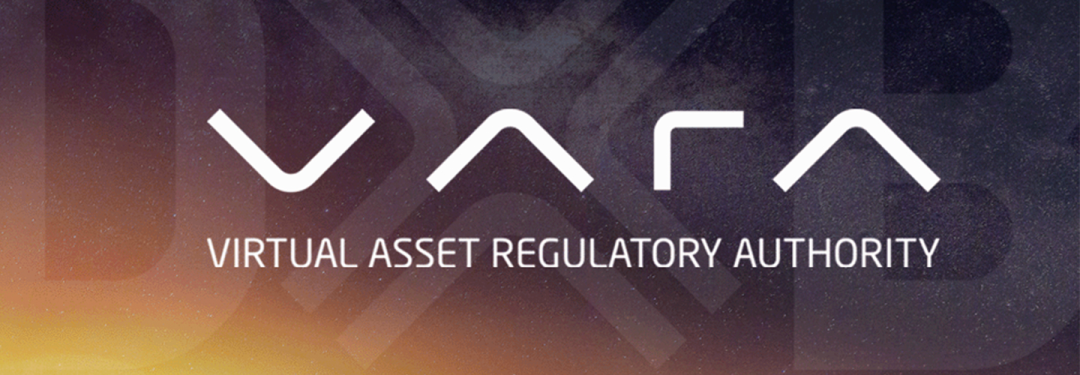
In 2023, Dubai's Virtual Assets Regulatory Authority (VARA) issued the "Virtual Assets and Related Activities Regulation," directly managing perpetual futures as "virtual asset derivatives," similar to forex and stock derivatives. Want to participate? You need to obtain a VARA exchange license, ensuring risk disclosure and investor protection.
- Perpetual futures are classified as virtual asset derivatives, similar to forex and stock derivatives in traditional financial markets.
- Exchanges must obtain a VARA exchange service VASP license, which includes VA derivatives.
For example, Deribit obtained a VARA trading service license in Dubai last year, covering both spot and derivatives. Dubai's approach strikes a balance: it welcomes innovation while preventing the market from becoming a "wild growth" playground.

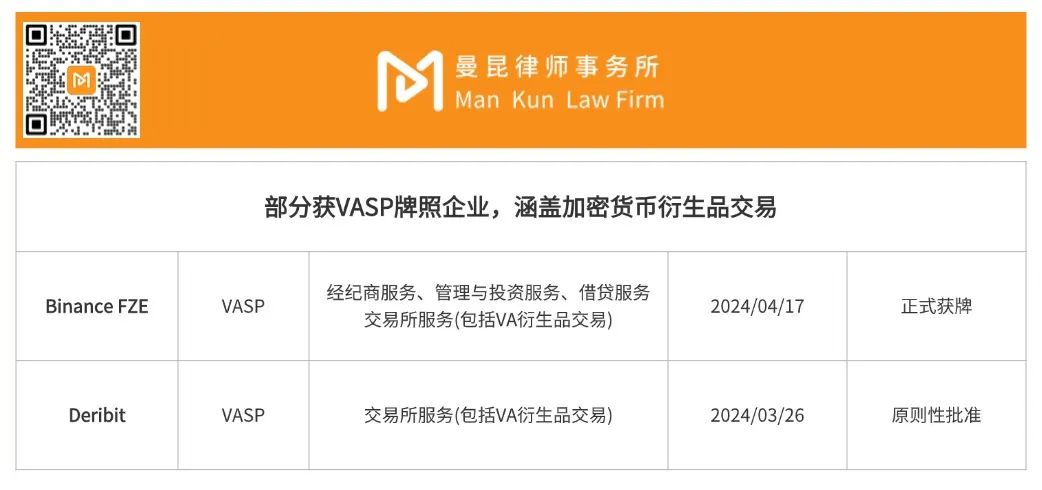
Singapore: Strict Access
Singapore has an open attitude towards cryptocurrencies, but the rules are strict. The Monetary Authority of Singapore (MAS) categorizes cryptocurrencies into utility tokens, security tokens, and payment tokens, with perpetual futures falling under the jurisdiction of "licensed exchanges." The margin for cryptocurrency derivatives at licensed exchanges is subject to strict regulation. To engage in contract trading, one must become a financial exchange approved by MAS to operate cryptocurrency derivatives and apply for DPT operating rights.
Currently, there are only four licensed exchanges in Singapore, including the Singapore Exchange Derivatives Market (SGX Derivatives), Asia Pacific Exchange (APEX), and Intercontinental Exchange Futures (ICE Futures), which are the only ones allowed to operate cryptocurrency derivatives. Strict access ensures market order and investor protection.
Interestingly, traditional exchanges in Singapore have begun to experiment with crypto perpetual futures aimed at institutional and professional investors. What does this indicate? Perpetual futures are also seen as legitimate financial derivatives in Singapore, not speculative toys. This also marks that traditional exchanges are accelerating their layout in the digital asset field to meet the growing demand from institutional investors for exposure to cryptocurrencies.
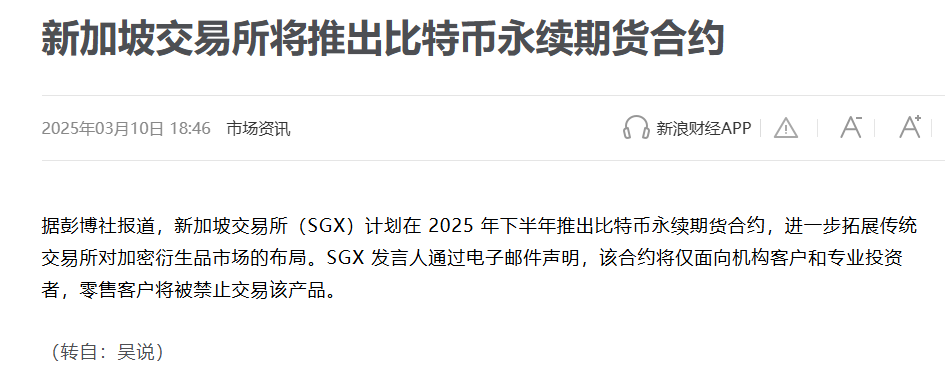
United Kingdom: Retail Investors Restricted, Big Players Free
Let's take a look at the United Kingdom. The Financial Conduct Authority (FCA) has prohibited retail investors from engaging with crypto derivatives, including perpetual futures, since 2021, but has opened the door for professional investors. The FCA refers to these as "high-risk financial instruments," requiring exchanges to register and operate in compliance. We can see that in the relatively strict regulatory environment of the UK, perpetual futures are also considered financial derivatives; their legality depends on whether you are a "qualified player," not on the tool itself being "gambling."

Hong Kong: Testing Derivatives, Taking Small Steps
In June 2023, Hong Kong began implementing the "Licensing Regime for Virtual Asset Trading Platforms," allowing retail investors to trade cryptocurrencies, but derivatives are still under observation. According to recent media reports, Liang Hanqing, the head of the Financial and FinTech Promotion Unit at the Hong Kong Invest Hong Kong, stated in an interview that although Hong Kong has only opened up spot trading for now, the government has already started researching the regulation of derivatives business. The COO of the exchange HashKey has also indicated that once policies are relaxed, they will apply for a license.
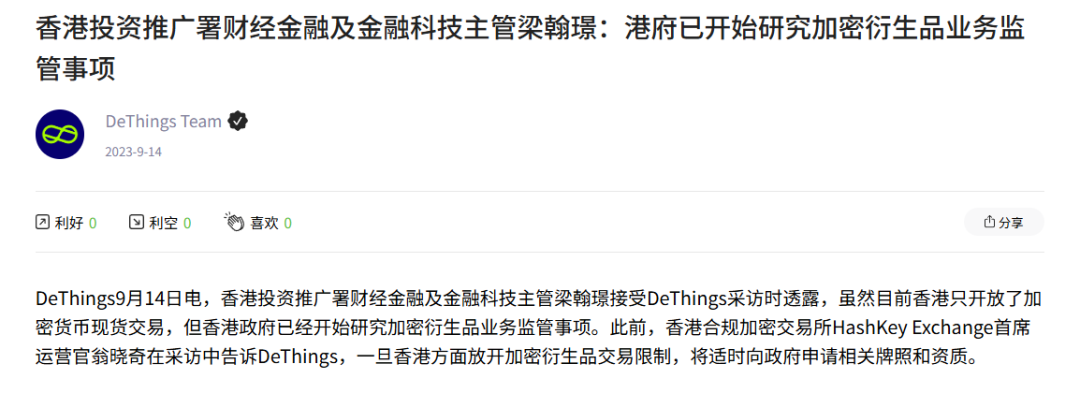
Hong Kong's approach is quite clever: first, manage the spot market well, then gradually test the waters for derivatives, avoiding both rashness and backwardness. The future of perpetual futures in Hong Kong is likely to be positioned as financial instruments, not classified as "gambling."
Summary by Mankun Lawyers
We can see that the global regulatory landscape is generally consistent: perpetual futures are financial derivatives, part of the same family as futures and options. The EU has issued a "compliance passport," the U.S. applies traditional derivatives rules, and Hong Kong, Dubai, and Singapore encourage innovation while tightening regulations. The UK manages based on investor levels, using licenses, risk warnings, and leverage limits to keep the market orderly.
In mainland China, the situation is somewhat different. Some courts have classified perpetual futures as "gambling," perhaps overlooking their financial attributes. The assertion that prices are "irregular" also deviates from global market data—Bitcoin prices have long been linked to the Nasdaq and Federal Reserve policies. This one-size-fits-all regulation may diminish the vitality of fintech in China, appearing somewhat conservative compared to global innovation trends.
Mankun Criminal Lawyers wrote this article to call on all parties to reference global experiences and reconsider the classification of perpetual futures in light of Hong Kong's policy trends. For instance, they could adopt the EU's MiCA tiered regulation approach, treating perpetual futures as financial instruments; or refer to the U.S. CFTC's commodity derivatives model, setting leverage limits and protecting investors. On the other hand, they also hope to clarify the nature of perpetual futures. We believe that trading perpetual futures (exchanges) under strict regulation in mainland China should not be the case, but fundamentally, it is an issue of lacking a license, which can be evaluated as illegal operation. Conversely, if perpetual futures are considered gambling, then tens of thousands of contract trades would already require administrative penalties for participating in gambling, which is clearly not conducive to social governance.
免责声明:本文章仅代表作者个人观点,不代表本平台的立场和观点。本文章仅供信息分享,不构成对任何人的任何投资建议。用户与作者之间的任何争议,与本平台无关。如网页中刊载的文章或图片涉及侵权,请提供相关的权利证明和身份证明发送邮件到support@aicoin.com,本平台相关工作人员将会进行核查。




